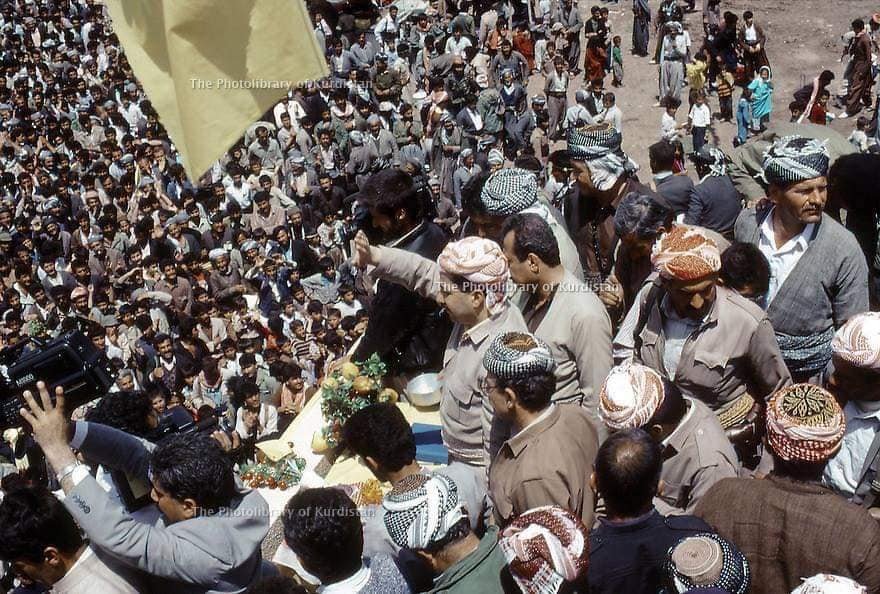In 1991, as the Gulf War came to an end, the Kurdish people saw an opportunity to break free from the grip of Saddam Hussein’s brutal rule. Decades of oppression, chemical attacks, and forced displacement had left deep scars, but the defeat of Saddam’s forces in Kuwait ignited a sense of hope. Encouraged by calls for rebellion and the belief that international support would follow, Kurds in northern Iraq rose up against the regime.

The Uprising and Its Short-Lived Victory
The Kurdish uprising began in March, spreading rapidly as towns and cities fell into the hands of the people. Armed with whatever they could find—old rifles, makeshift weapons, and sheer determination—Kurds stormed government buildings, freed political prisoners, and expelled Saddam’s forces from key strongholds, including Kirkuk and Sulaymaniyah. For the first time in years, it seemed possible that freedom was within reach.
But Saddam Hussein responded with unrelenting brutality. His forces regrouped and launched a devastating counterattack. The Iraqi military, backed by elite Republican Guard units, crushed the rebellion with overwhelming force. Airstrikes, artillery shelling, and mass executions turned what had been a hopeful revolution into a desperate fight for survival.
The Human Cost: Exodus to the Mountains
As Saddam’s forces advanced, millions of Kurds fled their homes in terror. Entire families—elderly, women, and children—escaped into the mountains, seeking refuge in the harsh and unforgiving terrain. The roads leading to Iran and Turkey became scenes of unimaginable suffering. Hunger, cold, and disease took thousands of lives. The world watched in horror as television screens showed images of desperate people, trapped between a merciless dictator and closed international borders.

The Aftermath and a Glimmer of Hope
International pressure eventually forced action. In response to the humanitarian crisis, the United States and its allies established a no-fly zone over northern Iraq, offering some protection to the Kurdish people. This intervention laid the groundwork for what would later become the Kurdistan Regional Government, granting the Kurds a degree of autonomy that had long been denied to them.
A Struggle That Continues
The 1991 uprising was a defining moment in Kurdish history—one of courage, loss, and resilience. Though the rebellion was crushed, it marked the beginning of a new chapter for the Kurds, who continue to fight for their rights and recognition to this day. The scars of Saddam Hussein’s brutal retaliation remain, but so does the unyielding spirit of a people who refuse to be silenced.


